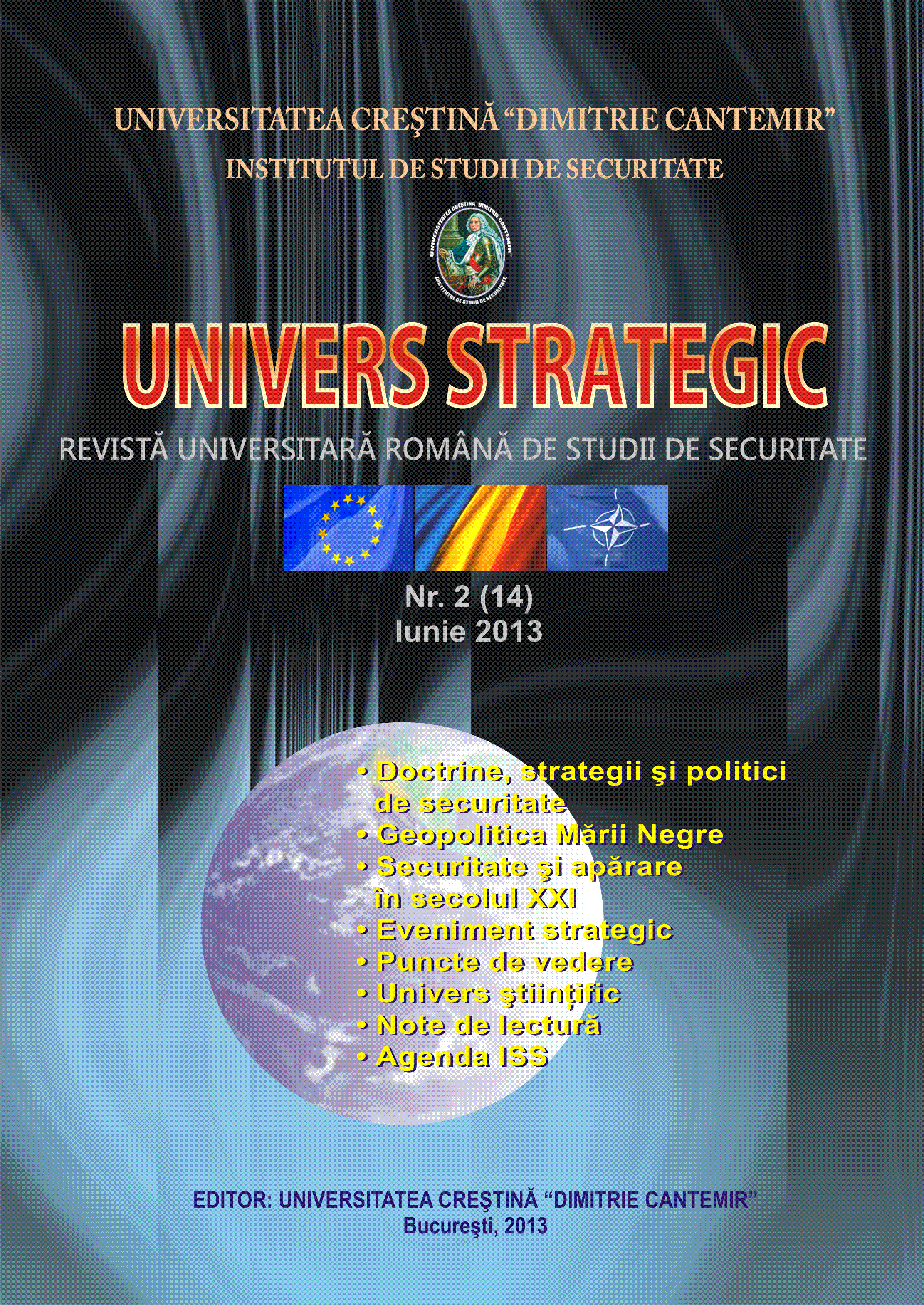SCENARII ALE CRIZEI SIRIENE
THE SCIENCES OF THE SIRENE CRISIS
Author(s): Riad Awwad, Alexandru Bodolică, Andrei Felix RoatăSubject(s): Politics / Political Sciences, Security and defense
Published by: Universitatea Crestina "Dimitrie Cantemir"
Keywords: Syrian crysis; Splitting Syria; Ethno-religious groups; Military intervention; Syrian regime & opposition;
Summary/Abstract: Syrian crisis started from 15 March 2011 as popular demonstrations originally directed against corruption, lack of jobs and high unemployment. Then it turned into political rally, culminating in the civil war between the state army and the Free Syrian Army, the regime and the opposition. Most demonstrators believed that the civilized world will intervene for the Syrian people, but did not take into account that each country has its own political and economic interests. Many have asked NATO intervention, not taking into account that NATO has also political and military interests. The absence of foreign intervention in Syria is motivated by several factors: Not being a member of NATO, Syria has not been a priority in the agenda of the alliance, thereby excluding any military intervention in the internal conflict. Arab League has asked any intervention NATO IN Syria, neither the UN has not approved the intervention, especially after the veto exercised by Russia and China, according to norm R2P. It is well known the fact that the Arab countries did never had a unified view on the conflicts arising in the Middle East over the past centuries. Egypt is against any military intervention in Syria, while Qatar has requested to be sent to Syria Arab Peace Forces. Algeria is against foreign intervention of any kind, while Morocco has proposed negotiating table as the most advantageous option. Iraq and Lebanon are under the influence of Syrian and Iranian regime and thus support the regime of Bashar Al-Assad. Even the Syrian opposition was not firm in their desire to remove the regime and to seek foreign military intervention. It was confirmed that opposition members have interests in prolonging the war in Syria. As in all civil wars, various clans are emerging to pursue maximum profits in state of crisis.Syria tends actually to separate into three mini-states: Kurdistan (Northern) Allawi (Latakia, Tartous) and Sunni (central and southern). Facing this possible trend of splitting of Syria into three mini-states, the question arises: where will be placed the other ethno-religious groups on new map? It is interesting, in particular the issue of Christians in the area that would suffer most from this ethno-religious partition.
Journal: Revista Univers Strategic
- Issue Year: IV/2013
- Issue No: 14
- Page Range: 114-119
- Page Count: 6
- Language: Romanian

